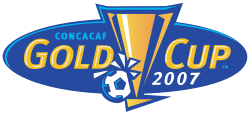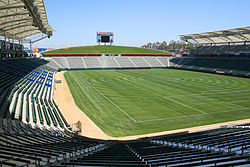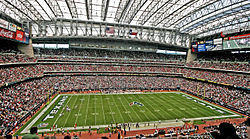| CONCACAF Championship | |
|---|---|
 2007 CONCACAF Gold Cup official logo | |
| Tournament details | |
| Host country | United States |
| Dates | June 6–24 |
| Teams | 12 (from 1 confederation) |
| Venue | 6 (in 6 host cities) |
| Final positions | |
| Champions | |
| Runners-up | |
| Tournament statistics | |
| Matches played | 25 |
| Goals scored | 64 (2.56 per match) |
| Attendance | 921,464 (36,859 per match) |
| Top scorer(s) | (5 goals) |
| Best player | |
| Best goalkeeper | |
| Fair play award | |
← 2005 2009 → | |
The 2007 CONCACAF Gold Cup was the ninth edition of the Gold Cup, the soccer championship of North America, Central America and the Caribbean (CONCACAF), and was won by the United States over Mexico. It was contested in the United States from June 6 to 24, 2007.
Contents
- Qualified teams
- Venues
- Squads
- Competition format
- Match officials
- Group stage
- Group A
- Group B
- Group C
- Ranking of third-placed teams
- Knockout stage
- Quarter-finals
- Semi-finals
- Final
- Statistics
- Goalscorers
- Awards
- Winners
- Individual awards
- All-Tournament team
- Controversy
- Notes
- References
- External links
This competition was the third overall edition of the tournament without guests (for the first time since 1993) from other confederations. As the winner, the United States represented CONCACAF at the 2009 FIFA Confederations Cup.






